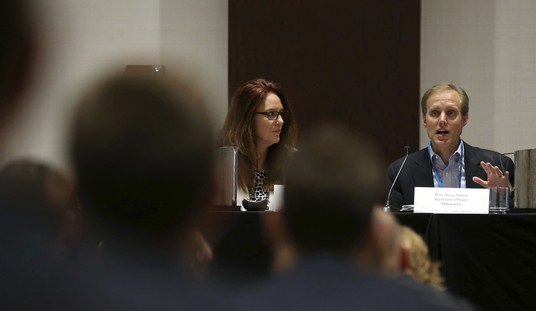In times of economic crisis, the temptation for public officials to do something is both overwhelming and tremendously dangerous. UCLA’s Dr. Lee Ohanian makes that point plain in his latest research on the Great Depression and its primary causes, in which Herbert Hoover’s reputation as a free-market politician gets serious revision. Hoover’s deal with manufacturing giants to keep wages high turned what should have been a deep but temporary recession into an economic disaster:
Pro-labor policies pushed by President Herbert Hoover after the stock market crash of 1929 accounted for close to two-thirds of the drop in the nation’s gross domestic product over the two years that followed, causing what might otherwise have been a bad recession to slip into the Great Depression, a UCLA economist concludes in a new study.
“These findings suggest that the recession was three times worse — at a minimum — than it would otherwise have been, because of Hoover,” said Lee E. Ohanian, a UCLA professor of economics. …
After the crash, Hoover met with major leaders of industry and cut a deal with them to either maintain or raise wages and institute job-sharing to keep workers employed, at least to some degree, Ohanian found. In response, General Motors, Ford, U.S. Steel, Dupont, International Harvester and many other large firms fell in line, even publicly underscoring their compliance with Hoover’s program.
Designed to placate labor and safeguard workers’ buying power, the step had an unintended effect: As deflation eventually did set in, the inflation-adjusted value of these wages rose over time, effectively giving workers a raise precisely at the time when companies were least in a position to afford such increases and precisely when productivity was beginning to fall.
“The wage freeze effectively raised the cost of labor and, by extension, production,” Ohanian said. “If you artificially raise the price of production, your costs go way up and you pass them on to the customers, and they buy that much less.”
As with other big government interventions, Hoover made the situation worse by attempting to control one part of the economic picture. When he froze wages, it amounted to across-the-board increases in buying power as deflation set in — and made their companies unable to pass along the costs of production to consumers. After two years, employment had dropped 35% and GDP by 27% as the American economy collapsed. Ohanian argues that two-thirds of that GDP decline can be directly attributable to this deal.
In comparison, Ohanian notes that the agricultural sector — exempt from the Hoover deal — performed much better. Agricultural wages dropped 30% in that period, but hours worked remained fairly constant through 1931. In fact, the ag sector continued to do (comparably) well until the 1935 Dust Bowl, which ravaged American farming and touched off the nation’s first large-scale homelessness.
Hoover wanted to avoid the political fallout of high unemployment and deflation at the same time. He hoped that his deal would arrest the fall of prices as well as wages by artificially keeping the latter frozen. That only works if people have capital to continue to buy; otherwise, it creates a kind of Ponzi scheme in which the manufacturers get left holding the bad, and in which workers get their hours cut progressively until they are in de facto unemployment.
We have seen the results of other large-scale government interventions the last few years, too. In the case of housing, however, the government didn’t respond to a crisis, but to prosperity. The Clinton administration — and more than a few Republicans — wanted to expand home ownership and distorted the lending markets to create a demand bubble, and essentially another Ponzi scheme in which buyers were encouraged to overreach and then refinance on equity gains. Congress fueled it through mandates to Fannie Mae and Freddie Mac to buy and securitize marginal loans that eventually collapsed and poisoned the entire financial sector.
Government has a legitimate role in regulating markets to prevent fraud and abuse. It does not have a legitimate role in manipulating markets for social engineering, no matter how well-intentioned that social engineering might be. Be sure to read the entire report.








Join the conversation as a VIP Member